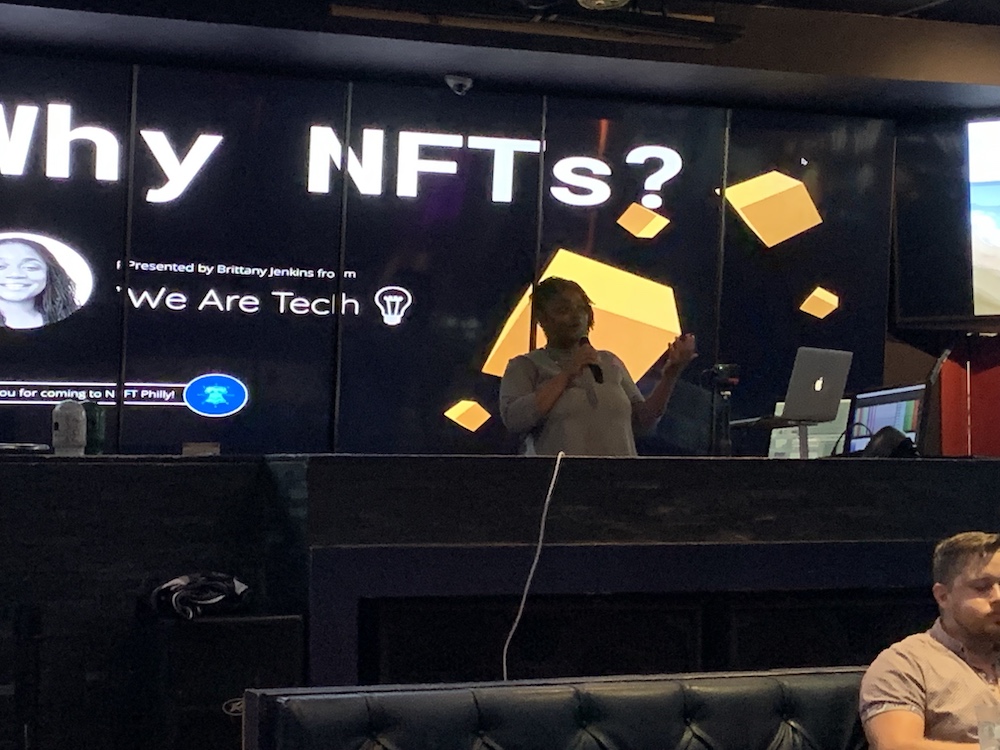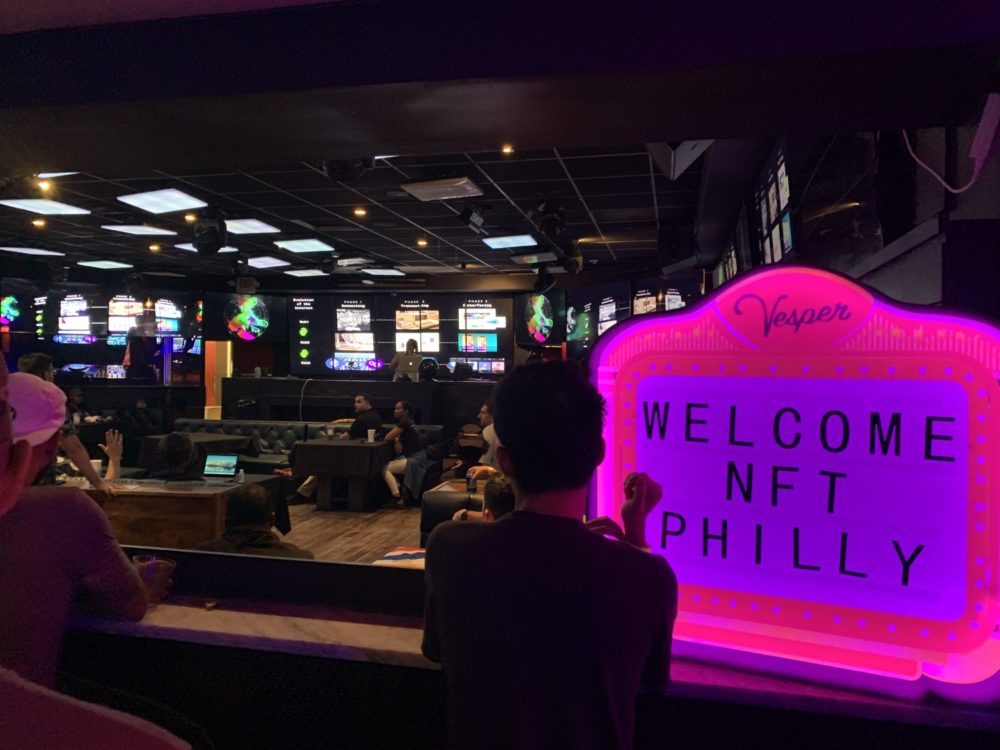NFT Philly, a group that hosts meetups for Philadelphians interested in all things nonfungible tokens — aka those blockchain-backed digital assets — hosted its latest meetup on Friday evening at Vesper nightclub in Center City. The evening included workshops, Philly Shilly (in which creators could pitch their projects to the crowd), mingling and comedy. They also served bagels.
According to Bar Franek, cofounder of NFT Philly, this was also the first time NFT Philly included workshops at one of its events. The opening workshop was led by Brittany Jenkins, the founder of edtech startup We Are Tech. Called “Why NFTs,” her presentation focused on both the technology and the overall evolution of the internet.
So, yeah, why NFTs?
NFTs are the gateway to commercial adoption of Web3, aka this latest connective, social, decentralized iteration of the web, the Philly-based Jenkins said. She compared the adoption of NFTs to the adoption of cell phones in the early 2000s: Most people did not have own one back then, except for select groups such as business professionals. But over time, everybody got one.
“That’s the same thing that’s going on right now [with] blockchain entities,” she said. “It’s a very curated group of people who are engaging in it, but because of the prominence of NFTs over these past couple of years, it’s really unlocked people’s curiosity to get into this space.”
NFTs can be anything digital, from images to music to a tweet. And people now have the power to determine what commercial adoption of NFTs looks like, Jenkins said. The process of buying them is fairly simple:
- Step one, get a crypto wallet, which is like your ID in the world of NFTs.
- Step two, go to an NFT marketplace and shop.
- Step three, click on what you want, make sure your wallet is connected to the platform, and once you purchase the NFT, you’ll see it in your wallet. Done.

NFTs at the digital intersection of art and money
Right now, people are getting into NFTs because they love art and want to support creatives, Jenkins said — but it’s also about building out your identity on the blockchain. She explained that in the future, you may need an NFT to show that you own real estate or to access your medical records.
Jenkins’ own introduction to the concept of NFTs was back in the early 2010s, when she was in the music industry working on concerts. CDs were dying off, but streaming wasn’t that lucrative yet, so the industry focused on making money through ticket sales, touring and festivals.
“I was a part of that generation of the music industry that was building new technologies around the festival experience, and from that, it just unearthed this notion around ‘how can artists independently monetize their content,’” she told Technical.ly.
NFTs and edtech
Since the pandemic, NFTs have boomed in popularity. Her startup, We Are Tech, is currently building a platform where people can learn digital literacy skills and earn cryptocurrency as they complete the practice modules.
She has been in education for about four years, she started teaching by volunteering with Girls Who Code, but has been in tech through self education for her whole career. Part of her company focuses on teaching kids about Web3 as a way to better help them understand what the future of tech might look like.
“Our platform is a catalyst to the future of work,” she said. “So as we’re teaching them how to make an NFT or how to make NFT projects, we also expose them to our products so that they can see how they can use technology to make things that would help them better their projects.”
As for the event?

Franek told Technical.ly the 4-to-10-p.m. meetup ended up seeing a good turnout, and many people stayed until the end of the night. The event also included a comedy show and workshops on topics such as generative art and how to land a Web3 job.
“I’m happy people showed up. We’re at a time where almost all of the media coverage about crypto is negative,” he said. “But to have hundreds of people show up in these very early days of what we’re all building together is amazing. There were thousands of conversations, hundreds of creative ideas being sparked between strangers, and partnerships and friendships being made. That makes it all worth it because I put everything I had into this.”







